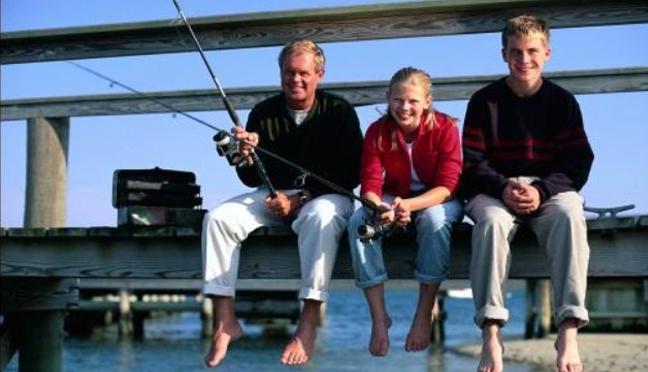As the days grow longer and the temperatures warm, the spirited side of us comes alive. Bikers and hikers populate sidewalks. Baseballs and soccer balls fly between players. Picnic tables become a comfy place to play games. The arrival of spring ushers in another season of family play and recreation.
Nothing seems to rejuvenate us like good, old fashioned play. Playing, especially amongst family members, is essential to well-being and health. It helps us learn and be creative, distress and relax, cooperate and experience joy. For children, play increases intelligence, reduces anxiety and heightens their sense of awe and wonder. For adults, play stimulates creativity, improves their mood and amplifies energy.
Play creates positive bond between family members. Play moves parents and children from what they have to do to what they enjoy doing. Think about the times when you allowed yourself to enter into the joyful abandon of a game of kickball or the antics of charades. Within minutes of submitting to the fun, it is easier to see family members in a rosier light. The laughter and silliness that is exchanged puts everyone on the same level; a community platform where all are welcome.
Play gently transports us back to a simpler time where worries were small and dreams were large. It turns our focus outward towards those we love rather than allowing us to become self-absorbed. With each playful exchange, we become more skilled at interacting and less concerned with what we are doing. Playing gives us permission to loosen up, create new memories, and just be ourselves.
The greatest aspect of play is that the means of play (that which we do) becomes more important than the end (the outcome). In true play, the emphasis is on the activity rather than what is accomplished. Take for example, a dad and a son who are creating a Lego object. More pleasure comes from the creation of the object rather than having the Lego building.
As spring progresses blends into summer, find ways to play as a family. Here is a great list of ideas from the Child Development Institute for you to try.
- Play outdoors. Throw balls. Push kids on swings. Make mud pies. Go on a hike around the neighborhood. Take a nature walk in your backyard. Encourage your children to be active outdoors. Help them develop motor coordination and learn good sportsmanship
- Play games: card games, board games, silly and wacky kids’ games. Praise them. Encourage them. Laugh with them.
- Get involved in a craft project together. Build a jigsaw puzzle as a family. Bake cookies. Paint a picture.
- Listen to music together. Sing along. Play rhythm instruments along with music. Get out the guitar or keyboard and make music.
- Read a book together. Ask questions. Ask them to change the story or make up a new one.
- Watch a movie together. Find out what they liked, how they felt. Discover the child’s interests. Comment on and discuss any bothersome content, either words or actions.
- Play kid games like Follow the Leader, Guess What I Am? or Hide and Seek.
- Establish a family game night. Pick and night and gather your family to play games and bond through friendly competition. Make sure the games are appropriate for the youngest player. Teach your child how to take turns and be a good loser as well as a good winner.
Source: Child Development Institute
by Alice B. Heinzen, Director of Marriage and Family Life

